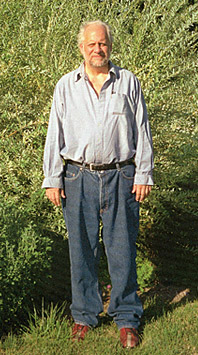Queens, Part One
Recently, on a lovely Saturday, I drove up to New York City to see the site where my grandfather, Jacob, worked in a nursery in Queens. He had just moved from Cincinnati, where he’d finished an 1890s era, “live-in” apprenticeship in his early teens. Then he spent a few years in rural western Long Island, outside the town of Flushing, known for its many German immigrants and nurseries, as well as a large armory. Grandfather joined the army and spent a few months in the Spanish American War achieving the rank of captain. Like other bachelors in their mid twenties, he took to heart the reports in the press that the Spanish had committed atrocities against U.S. civilians. Captured in the Philippines, he was tortured for a few days and released. He wrote in his journal that his captors decided that since he hadn’t talked, he knew nothing. He returned to Flushing a minor hero. He received a medal, rode in a parade and sat for a portrait. After a few weeks, he had enough of it and, in autumn 1898, began an odyssey back to Ohio to reconnect with his estranged relatives. He succeeded with one of his brothers. However, he remained restless and eventually chose Chicago as his home, a city with a huge German-speaking population. He married my grandmother, Anna, a German nurse who had immigrated, as a child, to Rock Island, Illinois. They had a family of four sons and a daughter, of which my dad was the youngest. In turn, I was his youngest, which is why a fifty-five year-old can have a grandfather who fought as a mature army captain in the 1898 “Philippine War”.
Time lines are even longer on my mother’s side. My maternal grandfather was born on March 7th, 1872, to a Civil War veteran from the rural and remote “upland” or Piedmont area of South Carolina. I have a small farm planted with loblolly pines on my maternal great, great uncle’s property in what’s called “the Deep South”, left to me by my mother. In a bit of a coincidence, my mother sang as a teenager in a choir at a Baptist Church convention in Brooklyn in 1937. Even then, Flushing and Queens were “out of town”. Her father was a school teacher who married at 48 to a woman in her 20s. He became the principal of the village school in Ware Shoals, a “mill town”—owned by the mill. When it changed ownership, he was out of a job and this was just before the great depression. When it hit, he was obliged for a brief time to move with my mother to a rural farmhouse so he could “work for food”, teaching farm children their ABCs in return for a chicken, vegetables and so forth. Mom’s two younger siblings stayed in town with my grandmother who had gotten a job in the town dress shop. Eventually, grandfather and mom were able to move back to town. He got a job as a grocery clerk at the “Big Friendly”, which soon became Piggly Wiggly. Grandfather was a Greek and Latin scholar, so the customers called him “Professor”, and many had been his students at the grade school. Today, the position would be a combination of stock clerk and “bagger”, since orders were usually phoned in or ladies would drop their lists off with him. He’d box them up for pick up or delivery.
He passed away in spring 1942 in his mid-seventies, after working right up to the last year. While in college during the late 30s, my mother met George Park, whose family owned Park Seed. They dated and he “pinned” her, but she broke it off when she met my dad.
Small world.
